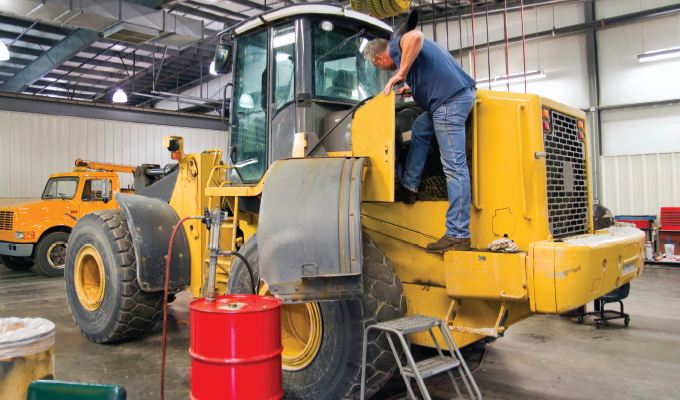By Herb Brownett
Every golfer I know keeps score each round and can tell you several numbers about their game. These include best score ever, target score on home course and, if they are serious, their handicap. Why keep track? As a long-struggling golfer, I can tell you, it is to measure improvement and strive to be better. I recommend that construction managers and executives responsible for their fleet profitability take a similar approach, assisted by construction equipment maintenance software.
TRACKING THE NUMBERS
Most businesses track key numbers. In construction, these include annual revenue, gross profit margin, and backlog. Refining this with additional metrics tailored to the business called key performance indicators (KPI’s) has become vogue. The intent is to create and track KPI’s that reflect significant aspects of the business, so management can improve them. Think of this as a handicap for each key business activity.
I have been surprised in my consulting, and other industry activities, to learn how few heavy construction contractors track KPI’s related to their equipment fleets. I have written in previous white papers about how significantly a company’s bottom line can be influenced up or down by the quality of its fleet management program.
FLEET MANAGEMENT KPIs
There are many KPI’s for fleet management, but these are my five favorites. They are common, and collectively cover most of the profit related issues of fleet management. For each one, I will identify the KPI, show how it is calculated, tell you the industry benchmark for good performance, and explain what it measures and why that is important for improving construction fleet profitability.
1. UNSCHEDULED DOWNTIME
The single greatest equipment related profit leak, in my opinion, is unscheduled downtime. When a piece of equipment is on a jobsite and is needed, but cannot be operated, it creates three unnecessary costs.
- The loss of recovery of ownership costs.
- The potential rental costs of a substitute piece of equipment.
- •Most importantly, is the disruptions of the job schedule and workflow.
The industry average for unscheduled downtime hours is approximately 25 percent. Best-in-class companies drive this to under 5 percent. The key factor is a rigorous and disciplined program of preventive maintenance.
2. PERCENTAGE OF PREVENTIVE MAINTENANCE HOURS
As noted above, preventive maintenance is the key to reducing unscheduled downtime. This metric measures whether mechanics are spending time on the appropriate amount of preventive maintenance versus emergency repairs. In other words, they spend more time preventing fires than fighting fires.
3. MAINTENANCE COSTS AS A PERCENTAGE OF ESTIMATED REPLACEMENT VALUE
The cost to maintain and repair aging equipment, at some point starts to jump by increasingly large amounts each year. This metric for an individual piece of equipment is a good tripwire to indicate that it’s time to evaluate further whether it’s time to dispose of the asset.

4. PERCENTAGE OF MAINTENANCE OVERTIME HOURS
Heavy equipment mechanics are valuable assets. Excessive overtime wears them down, decreases productivity, and may indicate that you do not have enough mechanics. Efficient use of mechanics can be improved by automating scheduling and their work orders.
5. MAINTENANCE COST AS A PERCENTAGE OF REVENUE
Total maintenance costs are a significant part of company costs. The total is influenced by many things, including some of the previously discussed items. At a high level, it is important for management to know if total maintenance costs are in line with a company’s work volume and revenue.
CLOSING THOUGHT
Best-in-class heavy construction companies track these KPI’s, and others, to constantly improve. Construction equipment maintenance software provides tools to facilitate this. While you are out improving your golf game, think about improving your construction fleet profitability.
About the author:
Herb Brownett, CCIFP, is the president of Brownett & Associates, LLC, a construction financial management consulting firm in Philadelphia, Philadelphia. Herb is a longtime member of CFMA and was national chairman of both CFMA and the ICCIFP. Herb is a construction financial management consultant working with heavy construction management software provider B2W Software, and is a nationally recognized author and speaker. For more, visit www.b2wsoftware.com.
Modern Contractor Solutions, January 2021
Did you enjoy this article?
Subscribe to the FREE Digital Edition of Modern Contractor Solutions magazine.



